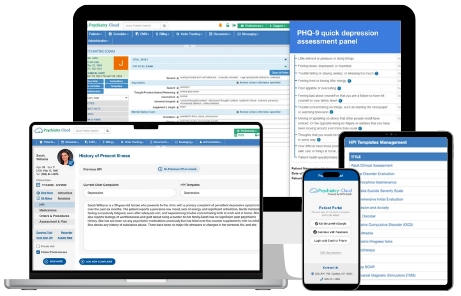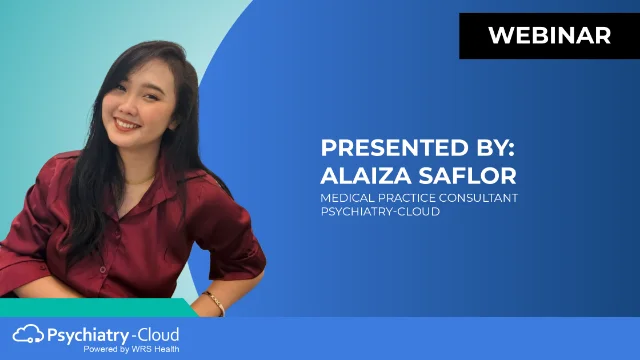Key Takeaways
- Rising operational costs are putting mental health practices at risk—but AI can reverse the trend.
- AI-powered EHRs improve billing accuracy, reduce admin work, and protect revenue.
- Psychiatry billing automation helps practices capture revenue that’s too often lost.
- Leverage Psychiatry-Cloud’s AI-enabled EHR to stay ahead in medical billing.
Table of Contents
How AI Turns Your Mental Health EHR Into a Cost-Saving Tool
- Cleaner billing upfront: AI agents review documentation, align it with payer rules, and flag errors before submission. This prevents costly denials and accelerates reimbursement.
- Smarter scheduling: Automated scheduling agents save staff several minutes per appointment by handling self-scheduling, registration, and insurance verification. Plus, system reminders reduce no-shows.
- Streamlined documentation: Features like automated note summaries and pre-visit data capture cut down on time-consuming paperwork and reduce after-hours charting.
The Hidden Cost of Legacy Psychiatry Systems
- Miss revenue opportunities: Without automated psychiatry billing, claims are more likely to be coded incorrectly or denied, leaving money uncollected.
- Create longer processes: Staff waste hours on manual intake, chart review, and claim resubmission tasks that modern AI tools can automate instantly.
- Contribute to burnout: Providers spend evenings and weekends completing notes, which can lead to turnover and recruitment costs that dwarf the price of a better system.
- Block scalability: As patient volume grows, the inefficiencies of old systems multiply, making it harder for practices to expand or add providers without massive overhead.
Psychiatry Billing: Protecting Revenue With Automation
Billing inefficiency is one of the largest financial drains for mental health practices. Incorrect codes, incomplete documentation, or eligibility errors can delay payment for weeks—or result in no payment at all.
For small practices, this intelligent automation is the difference between survival and struggle. For larger practices, it creates capacity to grow without hiring more staff. In both cases, the outcome is the same: an AI-enabled EHR can save money and confirm your practice isn’t losing revenue to inefficiency.
Can EHR Systems Really Help Reduce Costs?
There is power in a psychiatry-specific vendor that understands how behavioral health practices function. By reducing manual entry, improving billing accuracy, and automating repetitive tasks, practices can save hours of staff time each week and prevent thousands of dollars in lost reimbursement each month. For mental health practices balancing tight budgets, this difference can change day-to-day office operations substantially.
The Real ROI of a Mental Health EHR With AI
- Protecting revenue: Cleaner claims, faster payments, fewer denials.
- Expanding staff capacity: Intelligent automation reduces front desk workload.
Reducing burnout: Providers spend less time documenting and more time with patients. - Reducing burnout: Providers spend less time documenting and more time with patients.
- Scaling sustainably: Practices can add patients or locations without adding proportional costs.
Overcoming the Fear of AI
Many providers hesitate, wondering: How much does a mental health EHR with AI cost? The better question is: What does it cost not to use one?
Adopting AI might feel daunting, especially in mental health where trust and human connection are paramount. Focus on the gains, plan an intentional and careful adoption of AI features, and partner with an experienced EHR vendor.
A Smarter Path to Sustainable Care
The question isn’t whether AI can reduce costs—it’s whether your practice can afford not to use it. Rising expenses don’t have to be the norm for mental health practices. With AI, lost revenue turns into recovered income, and manual tasks shift into automated workflows.











